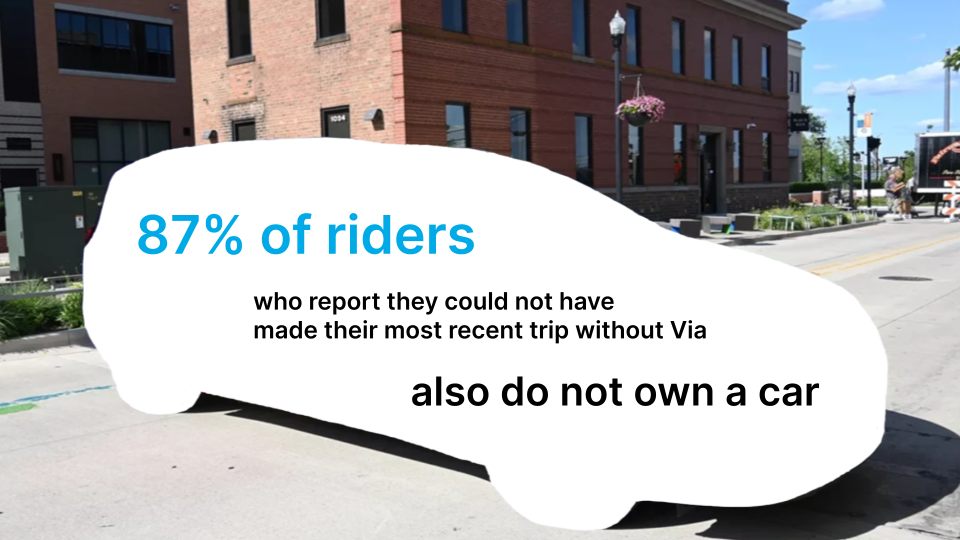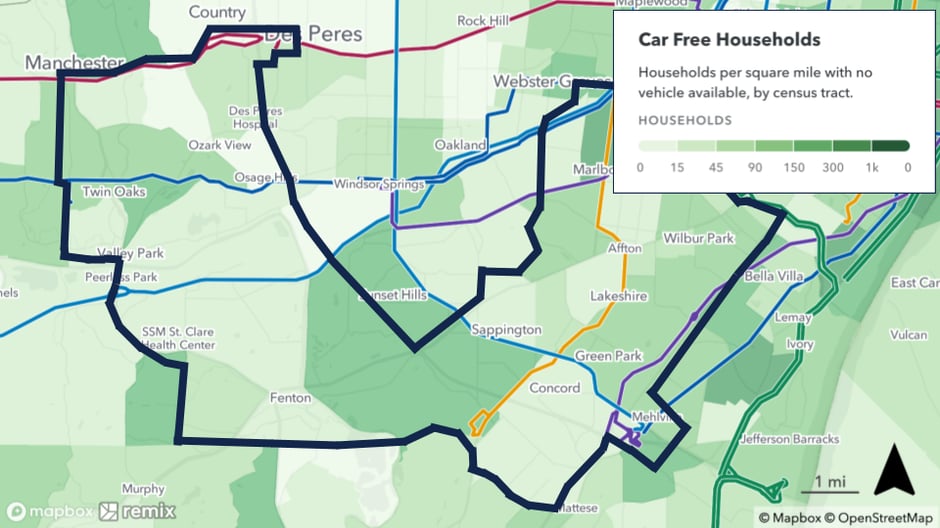We know that up to 35% of riders in Via-powered services would not have been able to make their most recent trip without Via. But why were the riders who made these trips otherwise unable to travel? We’ll explore a variety of reasons — income level, disability status — in future articles, but we’ll start with the factor with the strongest correlation: car ownership.
Across all Via’s services, 87% of these riders reported that they did not have access to a personal car. Among riders who did have an alternate mode of transportation, only 51% reported that they did not have access to a personal car. In short: riders who could not have traveled without Via were ~50% less likely to own a car than those who could have traveled regardless.
This makes a lot of sense when you consider Via often collaborates with cities and transit agencies looking to extend the reach of a conventional, fixed-route public transit system. Our teams collaborate to prioritize transit-spare areas of the city or region that are particularly critical to serve, using a variety of metrics, including rate of car-free households, to design on-demand zones that will have the greatest impact on mobility. For example, in the South zone of the Via Metro STL service in St Louis, Missouri, just a few bus lines serve a wide swath of the city characterized by pockets of car-free households.
In a low-transit environment, living without a personal car can mean expensive taxi trips, waiting for rides from friends, or long walks along roads unfriendly and dangerous to pedestrians. Car-free life is not only inconvenient in these areas — it can inhibit access to everything from healthcare to employment. As one rider of METGo, a Via-powered service in Wise, Virginia said: “[My] car blew up on the first day at a new job, and if it wasn’t for METGo I wouldn’t be able to keep working.”

Via Resource Editor


.png?width=71&height=47&name=Sioux%20Falls%20Webinar%20(6).png)


